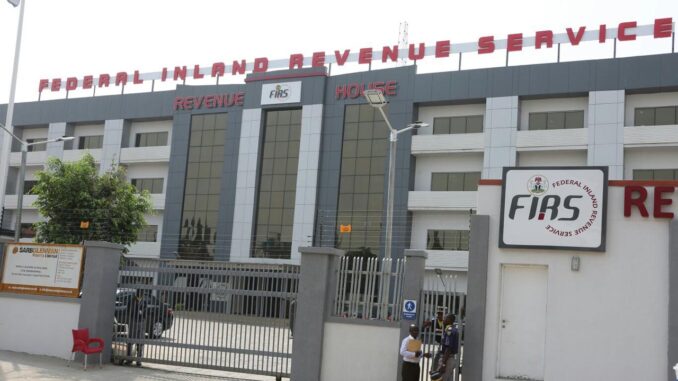
The issue of fiscal sustainability has been a challenge to the Nigerian economy, particularly since the inception of the Muhammadu Buhari administration in 2015. Though this is the experience of most economies in sub Saharan Africa in the past few years, it has been exacerbated with the negative lockdown effects of the COVID-19 pandemic, particularly for oil exporting countries such as Nigeria. The Buhari administration, since inception has been battling with the management of the national economy. With oil revenues at very low levels and tax collection far below expectations, public borrowing levels have shot up drastically and the country is currently faced with a serious debt repayment problem.
Against this background, the pronouncement the other day by Mr. Mohammed Nami, Executive Chairman of the Federal Inland Revenue Service (FIRS) that tax now constitutes 70 per cent of the country’s revenue calls attention to the need to address the revenue needs of the country in view of the prevailing economic challenges in the country. The assertion by Nami is questionable though, given that statistics from previous approved federal budgets over the years indicate that taxes constitute less than 15 per cent of the Federal Government revenue sources with oil revenue representing almost 60 per cent of the total. So one wonders where Nami is obtaining his figures from. Also the context within which he is making his assertions is not clear. But what is certain is that there is a challenge with oil revenue, particularly during the COVID-19 pandemic era and that other sources of revenue would need to be beefed up and strengthened, to enhance fiscal sustainability for the country.
One of the challenges of tax collection in Nigeria is the high proportion of the economy operating outside the tax net, which is higher than other countries on the African continent. According to Nami, the gap for Value Added Tax, VAT in Nigeria remained at a pitiable 70 per cent compared with South Africa at 12 per cent, Morocco at 28 per cent and Zimbabwe at 38 per cent. The implication is that the potential for more VAT collection is huge and that more surveillance and compliance is required to reduce this gap, in the quest to boost revenues that would accrue to the government. That is a problem Nami should solve. The tax-to-GDP ratio in Nigeria is currently at about six per cent, far below the World Bank recommended minimum of 15 per cent for economic growth and poverty reduction. It is also lower than what is obtainable in many other African countries such as Egypt (15 per cent), Ghana (17 per cent), Kenya (17 per cent) and South Africa (28 per cent). The key here is the need to bring more Nigerians into the tax bracket, particularly operators in the country’s huge informal sector. The lack of progress in these areas has helped to exacerbate the fiscal crisis the country is currently experiencing.
With this challenge, a serious debt crisis is looming in Nigeria. The consequences of Nigeria defaulting in its debt repayment programme could be dire with implications for security and political stability. Between January and June 2020, the Debt Management Office (DMO) figures indicate that about N1.21 trillion has already been spent on debt service and the question arises whether this can be sustained, particularly with about N3 trillion projected as debt service in 2021.
There is a great need to enhance domestic resource mobilisation in the country, as the oil sector is now becoming very unreliable in the sustenance of the fiscal operations of government. This is clearly manifest in the dwindling amounts currently being shared to the various tiers of government at the monthly Federation Accounts Allocation Committee (FAAC) meetings with many states hardly able to sustain their fiscal operations successfully and the Nigerian Governors’ Forum curiously planning to gain access to the country’s pension assets. They should stay away from these pension funds and avoid risking pensioners’ funds with devastating effects on them, should the states take the funds and develop difficulty in paying back when due. This can aggravate the plight of pensioners, compromise the official pension scheme under the Nigerian Pension Act; and expose government to incurring the wrath of the public with devastating protest. The states should look for other ways of strengthening their revenue drive.
Finally, government should seriously consider a drastic cut in the cost of governance at various tiers. That should be the way forward, particularly during this period of economic emergency.
END

Be the first to comment